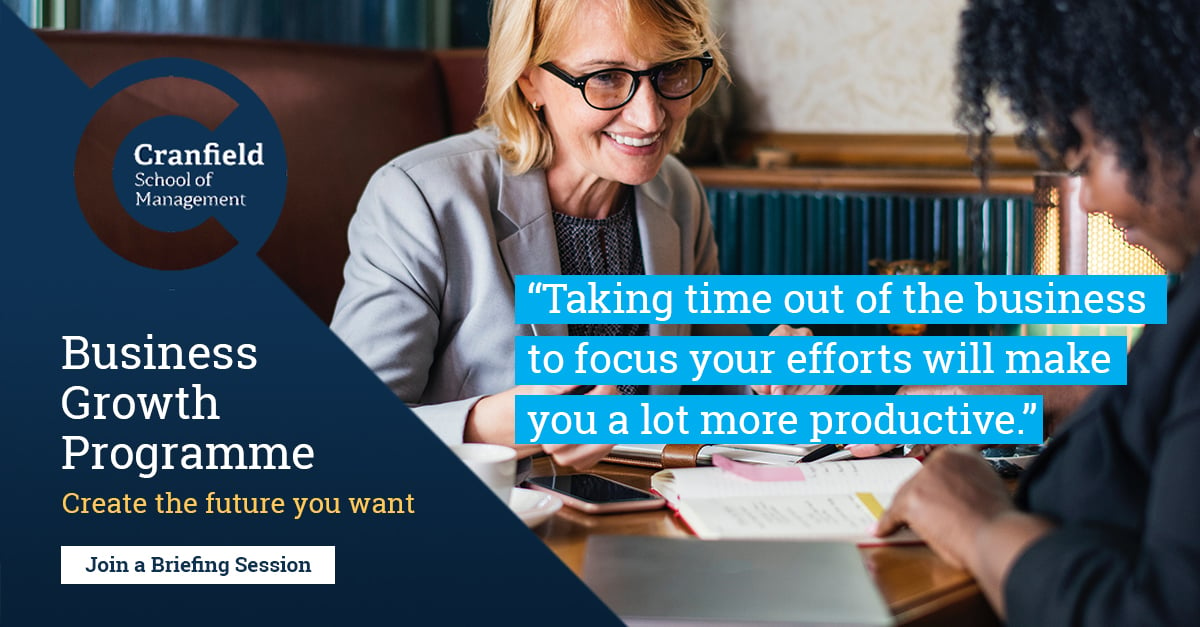“The business is doing really well. We’ve achieved so much since we started out, but I don’t know where to go from here”
It's all in the plan
It is surprising how many businesses do not have a plan. As someone once said: ‘If you don’t know where you are going, any road will take you there.’
The trouble is that businesses without any sort of plan can easily be distracted in all sorts of directions, or otherwise just plod along without making any real progress.
Research shows that companies that plan grow around 30% faster than those that don’t – that’s huge.
Writing a business plan for the next year or two that puts in writing what the business is really good at doing, how it is going to develop and get better at doing that job, who in the business is responsible for what, and how outcomes will be measured is really important.
It doesn’t have to be complicated – it could be a spreadsheet or PowerPoint presentation. The most important thing is that a plan exists which can be communicated to the rest of the team.
What's your vision?
Closely related to planning is having a vision for your business. I have often been surprised at some otherwise excellent businesses that attend the BGP who do not have any sort of communicated goal or vision of a goal.
Planning and vision are two very different things. You can make a plan and have no vision at all. Sometimes businesses make very short-term plans. They may be very detailed, with budgets, but they are just more of the same. They are not compelling.
Sometimes, that’s the right thing to do because they simply have to survive, and that’s all the vision they can have right now.
But, for businesses that are doing well, it’s important they know what it is they want to achieve. This starts with the owner-manager themselves. We encourage them to ask themselves how their life is set up currently compared to how they would like it to be. Do they want more time for their family, to exercise, to give back to the community, and how does the business need to change in order for that to happen?
Know what you want
Secondly, there are questions around well, actually, how big do you want your business to get, and what do you want from it?
On the BGP, we worked with a dog food company with turnover of £3.5 million, that wants to get that to £21 million by 2021. That’s enormous growth, but it isn’t just a number plucked out of the air. They have a vision to be the number one provider of healthy food for dogs. They’ve seen the huge expansion in the human health food sector and are asking the question: ‘If you buy healthy food for yourself, why not also for your dog?’ Their vision is really clear.
A vision is the point of the business. Without a clear vision, it is impossible to measure how well you’re doing and how to improve.
Business owners often don’t realise the galvanising effect a clear vision can have on their employees either. Talking to staff and other stakeholders about your big, audacious goal can be very, very inspiring, and – far from shying away from it – you’ll often find people want to do more, to think outside the box and think creatively to help you reach that goal, providing of course they think your business is a good one. If you want to be 10 times bigger but your business is massively polluting then maybe no one is going to be in that with you.
Define your purpose
This brings me on to the topic of purpose. Linked very closely to vision, purpose is very simply why a business exists. Why do clients or customers buy from you? Why do your staff come to work every day? If it’s just to get paid, then they aren’t going to stick around long. If someone offers them more money, they will leave you and walk down the road to the next job. It is pretty clear that people understand what the purpose of their work is, and it had better not be to make the owner manager rich.
You’ve got to have something that is bigger than you. Far from being complicated, this is actually pretty easy, when most businesses are doing something valuable for other people, otherwise they wouldn’t be in business. So, it’s just about finding a way of articulating that and communicating it with your employees and customers so that it is really clear and so that they want to support you in it and help you reach your goal.
Before people come on the Business Growth Programme, they are often running around a bit like headless chickens just doing the day job, just surviving, rather than saying: ‘Right, I’m going over the top in pursuit of this vision. Who is coming on the journey with me?’ That’s inspirational.
With thanks to Carol Foussat



